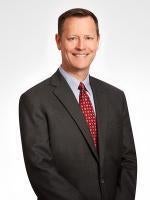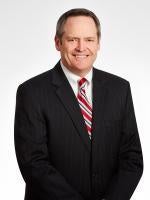Employers frequently face claims that they improperly classified employees as exempt instead of non-exempt. Employers must pay non-exempt employees one and a half times their regular- rate of pay for all hours worked in excess of 40 hours in a workweek. Misclassification can result in class action suits and exposure to liability.
In Christopher v. SmithKline Beecham, et al., No. 10-15257 (February 14, 2011), the Ninth Circuit Court of Appeals continued a split among federal appellate courts as to who is an “outside salesperson” under the Fair Labor Standards Act (“FLSA”). The FLSA, which is the federal wage and hour law, presumes that employers must pay their employees overtime for hours worked in excess of 40 hours per week. But the FLSA contains multiple exemptions from the requirement to pay “time and a half” for overtime, including exemptions for “executives,” “administrative employees,” and computer professionals.
In SmithKline, the Court sought to define who falls under the “outside salesperson” exemption of the FLSA. In a regulation, the Secretary of the Department of Labor defined an outside salesperson as any employee:
(1) Whose primary duty is: (i) making sales within the meaning of section 3(k) of the Act; or (ii) obtaining orders or contracts for services or for the use of facilities for which a consideration will be paid by the client or customer; and
(2) Who is primarily and regularly engaged away from the employer’s place or places of business in performing such primary duty.
The Secretary defines an employee’s “primary duty” as “the principal, main, major, or most important duty that the employee performs.” Work that an employee performs incidental to his sales work, such as writing sales reports or attending sales conferences, also counts as exempt work.
In SmithKline, the Secretary, as an amicus, argued that personal sales representatives (“PSRs”) for pharmaceutical companies were not exempt because they did not “sell” drugs, but rather “promoted” them. Under the FLSA, employees are “promoters” if they engage in activities meant to stimulate someone else’s sales—not their own. Because drug regulations prevented PSRs from selling drugs directly to patients, the Secretary argued that PSRs were not outside salespeople.
The Court of Appeals, in a split with the Second Circuit, held that it owed the Secretary’s position no deference. If a statute is ambiguous, courts will defer to an administrative agency’s regulation so long as it is “based on a permissible construction of the statute.” In turn, courts will also defer to agencies’ interpretations of their own ambiguous regulations unless those interpretations are “plainly erroneous.” But the Court of Appeals also noted that if a regulation parrots the statute it purports to interpret, no deference is due to the regulation and, in turn, no deference is due to the subsequent agency interpretation of the regulation. Because the regulation defined “sale” by referring back to the statute’s own definition of the term, the Court of Appeals gave the Secretary’s view no deference.
The Ninth Circuit held that PSRs are outside salespeople. Even though PSRs could not sell drugs, they could get non-binding commitments from physicians to prescribe their company’s drugs. The Court found that these commitments were essentially “sales” because they would result in increased prescriptions; they affected PSRs’ commissions; and because the Secretary had not interfered with employers’ classification of PSRs as outside salespeople since the FLSA was enacted.
Although the Ninth Circuit upheld the exemption, the case illustrates some troubling trends for employers. First, it showed the Secretary was willing to reverse a decades-old interpretation of the outside salesperson exemption and pursue an employer it had previously left alone. Second, the case resulted in a circuit split that will require more litigation to resolve.





 />i
/>i

